

Overview
The International Baccalaureate® (IB) Primary Years Program (PYP) aims to help students develop the skills, knowledge and attitudes they need to excel not only in their studies but also in their personal growth. The PYP is a process led, inquiry based curriculum that encourages students to ask questions and seek answers about the world around them. It helps students to become independent, confident thinkers and learners from an early age. The programme incorporates local and global issues into the curriculum, asking students to look at six related, trans-disciplinary themes and to consider the links between them. The International Baccalaureate® (IB) Primary Years Program (PYP) is underpinned by six trans-disciplinary themes around which learning is planned.
These are:
• Who we are
• Where we are in place and time
• How we express ourselves
• How the world works
• How we organize ourselves
• Sharing the planet
Program Components
The 5 Essential elements of PYP are: Knowledge, Skills, Concept, Attitudes and Action
• Knowledge – which is both disciplinary and trans-disciplinary is represented by traditional subject areas – language, mathematics, science, social studies, arts and PSPE.
• Skills – which are the broad capabilities students develop and apply during learning and in life beyond the classroom.
• Concepts – which students explore through structured inquiry in order to develop coherent, in-depth understanding, and which have relevance both within and beyond subject areas.
• Attitudes – which contribute to international-mindedness and the wellbeing of individuals learning communities and connect directly to the IB learner profile.
• Action – which is an expectation in the PYP that successful inquiry leads to responsible, thoughtful and appropriate action.
Teaching Methodology
• Visible thinking routines are practiced at Oakridge to promote and enhance student’s learning. These routines enrich the classroom environment and foster student’s intellectual development. It helps students to reflect on their thinking about a topic or issue and explore how and why that thinking has changed.
• Classroom routines for developing language, mathematical concepts and a sense of belongingness, ensure that you get through things that need to be done daily or weekly. With these routines in place the students are aware what is expected from them.
• Learning by doing – Students are given various opportunities to explore, investigate and find out answers to their queries. Virtual and in-house field trips give prospects to their learning.
Parent involvement in their children’s learning, not only improves a child’s morale, attitude, and academic achievement across all subject areas but it also promotes better behavior and social adjustment. Assessment is an essential part of the teaching and learning process. It provides information about student learning and development, as well as a framework for planning, self-reflection, and collaboration. Formative and Summative assessments are done for each unit followed by Student led conferences, this helps teachers in understanding students’ strengths and challenges. These are reflected in a report called “The Touch stone report” and is shared with parents periodically.
PYP Exhibition
In the final year of the PYP, students, carry out an extended, in-depth, collaborative project known as the PYP exhibition. This involves students working collaboratively to conduct an in-depth inquiry into real life issues or problems. Students collectively synthesize all the essential elements of the PYP in ways that can be shared with the whole school community. They identify, investigate, and find solutions to real life problems. It also provides teachers with a powerful and authentic process for assessing student understanding. The exhibition represents a unique and significant opportunity for students to exhibit the attributes of the IB learner profile developed throughout their engagement with the PYP. It also provides schools and students with a wonderful opportunity to celebrate the transition of learners to the next phase of their education.
Student Led Conference (SLC)
At the end of an academic year, students demonstrate their knowledge in learning through a formal SLC. In addition to the concepts learnt, various skills like communication skills, social skills, attitudes like confidence, respect and time management, collaboration is presented by students to parents, peers, and teachers. This assessment gives an in-person experience to parents on their child’s overall development.
• Oakridge, parents are involved openly in all major activities.
• Reflection is an integral part of IBPYP: Teacher’s reflect on his/her teaching style and strategies while students reflect on what, why and how the learning has changed their views.
Assessment
Assessment is an essential part of the teaching and learning process. It provides information about student learning and development, as well as a framework for planning, self-reflection, and collaboration. Formative and Summative assessments are done for each unit followed by Student led conferences, this helps teachers in understanding students’ strengths and challenges. These are reflected in a report called “The Touch stone report” and is shared with parents periodically.
PYP Exhibition
In the final year of the PYP, students, carry out an extended, in-depth, collaborative project known as the PYP exhibition. This involves students working collaboratively to conduct an in-depth inquiry into real life issues or problems. Students collectively synthesize all of the essential elements of the PYP in ways that can be shared with the whole school community. They identify, investigate, and find solutions to real life problems. It also provides teachers with a powerful and authentic process for assessing student understanding. The exhibition represents a unique and significant opportunity for students to exhibit the attributes of the IB learner profile developed throughout their engagement with the PYP. It also provides schools and students with a wonderful opportunity to celebrate the transition of learners to the next phase of their education.
Student Led Conference (SLC)
At the end of an academic year, students demonstrate their knowledge in learning through a formal SLC. In addition to the concepts learnt, various skills like communication skills, social skills, attitudes like confidence, respect and time management, collaboration is presented by students to parents, peers, and teachers. This assessment gives an in-person experience to parents on their child’s overall development.
The International Baccalaureate Middle Years Programme (IB MYP) is a challenging programme for adolescent learners aged between 11-16 years in the IB Continuum of Programmes.
This programme places specific emphasis on the holistic development of students and their individual abilities and levels of understanding. Their learning is further broadened with values and sound judgments challenging their emotional, physical, psychological, and social well-being.
The IB MYP comprises eight subject groups:
The IB MYP curriculum bridges 8 subjects with an emphasis on communication skills personalizing their sense of responsibility to the community around them. The programme model concentrates on student-led learning in every possible classroom setup. Oakridge focuses our students’ efforts on communication, study skills; strong writing skills, research and a great deal of practical thinking skills, leading to good levels of analytical skill. Students constantly reinforce the programme support base, which are concepts, global contexts, and attitudes to learning (ATLs), preparing them for the rigors of post-secondary education.
The Association of Indian Universities (AIU) has officially accepted the IB MYP in India. The MYP Year 5 (Grade 10) certificate is now accepted as qualifying criteria to apply for higher education or Junior College. Similarly post school educational institutions in India are directed by the AIU to accept the IB Diploma (Grade 12) as qualifying admission criteria on par with Class 12 CBSE and ICSE.
Oakridge believes in exposing students to a variety of skills needed to keep them engaged in self-learning. In line with this we consistently engage students’ synergies guided by the IB learner profile elements. Broadly the subjects provide students with learning objectives to ensure a base of knowledge in each area of study. In this way Oakridge affirms the dynamic pattern of the three stages – inquiry, action, and reflection as essential relationships found in every unit of study. The rationale here is to inculcate the habits of going that extra mile in researching the topics, develop critical thinking and above all attain mastery on the subjects The MYP instructional model follows an inquiry-based approach. Students are encouraged to reflect on their learning, formulate their own inquiries for further study and consider appropriate action based on what they have learned.
Children today are ‘digital natives’ and it is important for us to engage them through means and media that they are comfortable with. Keeping in sync with the ever-evolving learning needs of our students, new initiatives have been implemented to make learning more meaningful and fun for them.
DOEAR Programme – The Design of Electronics Arts and Robotics (DOEAR) programme is offered to students to develop and apply practical and creative thinking skills. This programme features trending technologies, electronics, digital fabrication, robotics and much more which bridge academics and practical application of concepts learned.
Tablets – This initiative is all about leveraging technology in the teaching and learning process. Apart from the obvious benefit of ease of access to information, tablets are pre-loaded with grade-specific learning content, including e-books, relevant Apps, supporting videos, power point presentations from class as well as assessments.
Flipped Classroom – The flipped classroom is a pedagogical model in which the typical lecture and homework elements of a course are reversed. Video lessons are viewed by students at home, before the class session, while in-class time is devoted to consolidating understanding, problem solving, exercises and simulations, projects, and discussions.
MYP classrooms at Oakridge foster IDL through interdisciplinary project units, which is a cross curricular learning unit form two or more of the subjects. Student’s learning is facilitated to reveal connections between these fields of knowledge and they get to use the acquired knowledge from one area to build understanding in other disciplines.
Oakridge promotes the concept of lifelong learning, fostering creativity through life skills, teamwork, and collaboration. Students’ active participation contributes to the holistic study of complex issues and ideas. Integrated learning of this kind equips young minds with the right set of skills to become partners in the world of their generation.
Being caring is a required component of the IB MYP and at the same time supporting the Oakridge aim of being a school committed to developing internationally minded people who recognize their common humanity and shared guardianship of the planet, Service as Action extend beyond the classroom. This allows students to participate in the community where they live, paying special importance to developing their sense of social responsibility and, improving those skills that will enable them to make effective contributions to society. For student development to occur, Service as Action learning should involve:
IB MYP approaches to learning skills are unique – focus is on thinking, communication, social, self-management, and research, which makes it a holistic approach to learning. In essence, ATL has great influence on student’s education i.e., “not only what the students learn but how they learn”
Physical and Health Education at Oakridge provide an opportunity for every student to take part in competitive and non-competitive recreational sports activities within the framework of the coursework.
Sport and physical activities are a valued and accepted part of our school’s curriculum, contributing to the development of the whole child. It provides a vehicle for social, physical, emotional and value learning and is an important expression of our culture.
The assessment at Oakridge is fair and transparent. An assessment given to a student contains a task sheet and assessment criteria. The teacher grades the assignment and students receive feedback based on the assessment criteria. This process is repeated throughout the semester so that all criteria in every subject is covered at least twice in the year. At the end of the semester, each teacher analyzes the student’s grades and uses their professional judgment to award a level of achievement for each individual criterion. The criterion levels in each subject are then added together to give a criterion levels total for that subject. This total is then converted to an OLA (overall level of achievement) out of 7 using the grade boundary tables from the IB. The End of Semester reports include individual criteria and an OLA for each subject, as well as development in five Approaches to Learning (ATL) Skill Areas.
The Personal Project is a major activity for students to complete in Year Five (10th Grade) of the MYP program at Oakridge International School.
The personal project provides an excellent opportunity for students to produce a truly personal and often creative product/outcome to demonstrate the consolidation of their learning in the MYP.
The project offers many opportunities for differentiation of learning and expression according to students’ individual needs. Each student develops a personal project independently.
The Community Project is an important activity for students to complete in Year Three (8th Grade) of the MYP program at Oakridge International School.
The community project focuses on community and service, giving students an opportunity to develop an awareness of needs in their immediate communities and address those needs through service learning.
As a consolidation of learning, the community project engages in a sustained, in-depth inquiry leading to service as action in the community.
The International Baccalaureate® (IB) Diploma Program (DP) is an assessed program for students aged 16 to 19. It is respected by leading universities across the globe.
The curriculum is made up of the DP core and six subject groups. Made up of the three required components, the DP core aims to broaden students’ educational experience and challenge them to apply their knowledge and skills.
The three core elements are:
The six subject groups are:
All universities in India accept the IB Diploma as equivalent to Class 12 qualification from an Indian board
The IGCSE is a comprehensive two-year program for Grades 9 and 10. It is a balanced mix of practical experience and theoretical knowledge. It is a universally recognized qualification among international schools and universities worldwide
The course offers sound international education, regularly updates, and extends the curriculum. It lays an excellent foundation for students who wish to continue with the IB Curriculum at the pre -university level.
Cambridge IGCSE helps improve learning performance by developing skills in creative thinking, enquiry and problem solving. It is the perfect springboard to advanced study.
Various Strategies used at Oakridge to ensure student development:
Cambridge IGCSE assessment takes place at the end of the course and can include written, oral, coursework and practical assessment. This broadens opportunities for students to demonstrate their learning, particularly when their first language is not English. In many subjects there is a choice between core and extended curricula, making Cambridge IGCSE suitable for a wide range of abilities. Core and Extended syllabus Grades are benchmarked using eight internationally recognized grades. (A*, A, B, C, D, E, F and G). Includes written, oral, coursework and practical assessment.
The CBSE envisions a robust, vibrant, and holistic school education that will engender excellence in every sphere of human endeavor. The Board is committed to providing quality education to promote intellectual, social, and cultural vivacity among its learners. It works towards evolving a learning process and environment, which empowers the future citizens to become global leaders in the emerging knowledge society. The Board advocates Continuous and Comprehensive Evaluation with an emphasis on holistic development of learners. The Board commits itself to providing a stress-free learning environment that will develop competent, confident and enterprising citizens who will promote harmony and peace.
CBSE offers Classes 11 and 12 with total term duration of two years. The course culminates with Class 12 CBSE Board Examinations (AISSCE) in the month of March. Students have to appear for examinations in five (5) subjects including one language, i.e. English Core.
Science Stream
Commerce Stream
Elective subjects
Assessment for CBSE Classes is based on the Continuous and Comprehensive Evaluation system. (CCE)
The CCE or Continuous and Comprehensive Evaluation scheme refers to a school-based evaluation of students that covers all the aspects of a student’s development. Continuous means regular assessments, frequency of unit testing, analysis of learning gaps, applying corrective measures, retesting, and giving feedback to teachers and students for their self-evaluation, etc. Comprehensive on the other hand attempts to cover both the scholastic and the co-scholastic aspects of a student’s growth and development – with both these aspects of the evaluation process being assessed through Formative and Summative Assessments.
Formative Assessment is a tool used by the teacher to continuously monitor student progress in a non-threatening, supportive environment. It involves regular descriptive feedback, a chance for the students to reflect on their performance, take advice and improve upon it. It involves students’ being an essential part of assessment from designing criteria to assessing self or peers. If used effectively it can improve student performance tremendously while raising the self-esteem of the child and reducing the workload of the teacher. Formative Assessment is thus carried out during a course of instruction for providing continuous feedback to both the teachers and the learners for taking decisions regarding appropriate modifications in the transactional procedures and learning activities.

Hyderabad, Gachibowli

Hyderabad, Bachupally

Visakhapatnam

Mohali
Bengaluru